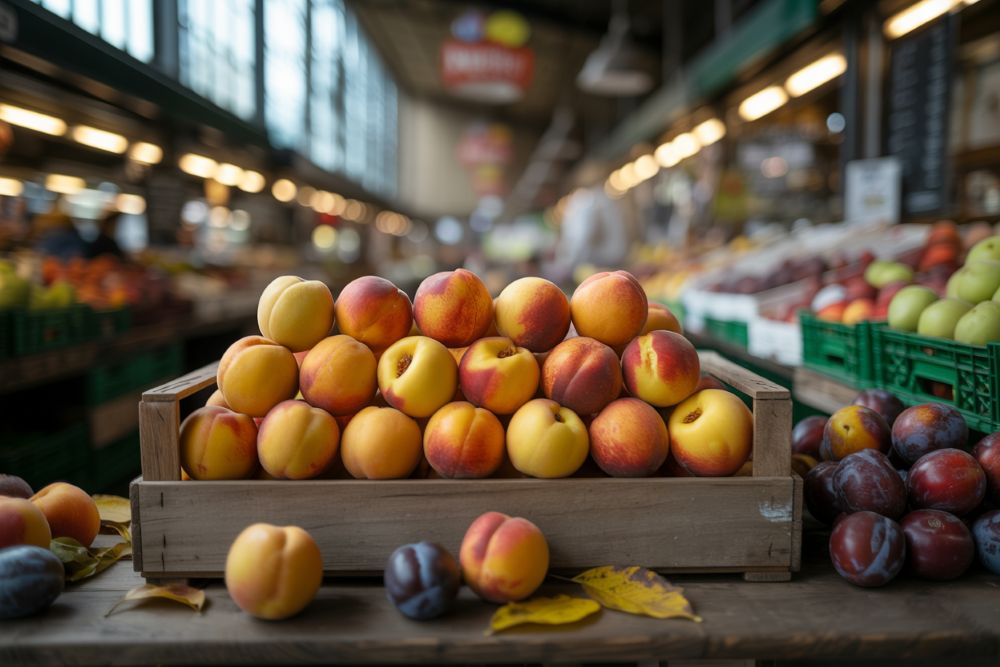Home » EUROPE » Food Ban Issues Create Chaos For Travellers Entering England, Scotland Or Wales, UK: What You Need To Know
Published on
September 15, 2025
If you’re heading to England, Scotland, or Wales, make sure you know the rules about bringing food or animal-related products into the U.K. The latest tips are very clear, you can’t just pack what you like. Strict limits are in place, and if you don’t follow them, you could be hit with a fine. The goal is to keep the country’s health, farms, and natural areas safe.
For tourists, this means that packing a simple treat from home could lead to confiscation at border checks if the item is not permitted. Officials have underlined that ignorance of the rules will not excuse travellers from enforcement action.
What Food Is Permitted Without Restrictions
The government guidance outlines a list of items that visitors can bring into Great Britain without any special requirements. Tourists are free to carry products such as plain bread, cakes without cream, biscuits, confectionery, pasta, noodles, packaged soups, stock cubes, flavourings, and certain processed plant products. Food supplements with small quantities of animal-based ingredients, like fish oil capsules, are also permitted.
These allowances provide reassurance for many travellers who rely on packaged goods when journeying. However, the list excludes many popular foods that visitors may assume are safe. For instance, sandwiches containing meat or dairy products are not permitted, even if they appear harmless.
Restricted Food Categories
The stricter controls apply mainly to products of animal origin. These include meat, dairy, fish, and other animal-based foods, which are either completely banned or allowed only with permits. The level of restriction varies depending on the country of origin.
Travellers entering from non-EU countries face tougher rules than those arriving from EU member states or specific approved territories. However, the rules also state that these checks are necessary to prevent the spread of diseases, such as foot and mouth, and to safeguard local farming communities.
How the Rules Affect Tourists
For international tourists, the restrictions can affect both convenience and cultural habits. Many travellers prefer to carry familiar snacks, dairy products, or homemade items on long journeys. The ban means they must adapt, often buying alternatives locally once inside the UK.
Travel industry observers noted that misunderstandings at airports and ferry terminals could create stressful experiences for tourists. While enforcement is not intended to discourage visitors, the perception of inconvenience may influence how travellers plan their trips.
Official Guidance and Border Enforcement
UK border officials have reiterated that the rules are publicly available on the official GOV.UK portal and travellers are expected to review them before departure. Officers at entry points are empowered to seize prohibited items and, in cases of serious violation, apply fines or further penalties.
Government representatives have also advised that travellers should not assume familiar goods from their own country are automatically acceptable. Food that appears harmless, such as cheese or cured meats, may fall under the restricted category without proper certification.
Tourism Industry Impact
Tourism plays a vital role in the UK economy, and measures that impact visitor experience always draw attention. While these restrictions serve an essential role in protecting health and agriculture, the tourism sector recognises that compliance adds a layer of preparation for visitors.
Tourists who fail to comply risk not only losing their food items but also experiencing delays or fines that disrupt their journey. Travel advisors now recommend that visitors purchase food locally to avoid disappointment and to engage more with regional products and markets.
Preparing for Travel
The GOV.UK website provides clear and regularly updated information on what items are permitted. Tourists are encouraged to check this before travelling to avoid complications. Airlines and ferry operators are also working to raise awareness through pre-travel communications.
These measures highlight how international travel now requires greater awareness of local rules. For tourists, preparation is key to ensuring a smooth experience at UK borders.
Awareness Is the Best Safeguard
If you’re coming to England, Scotland, or Wales, the new crackdown on food imports is a clear reminder: plan ahead. Travelers still tempted to pack snacks or spices should read the official rules carefully; a missed detail can lead to long queues, wasted food, and even hefty fines.
By knowing the dos and don’ts in advance, you can wipe worries off the list and dive straight into the castles, pints, and afternoon teas that make the trip memorable. Keep your attention on the rules, not on guesswork, and the journey will be that much smoother.
